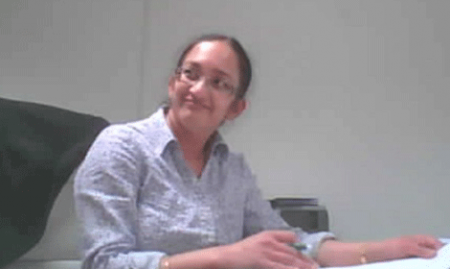Doctor to appear in court in UK’s first gender abortion prosecution
11/11/2014: A doctor has been ordered to appear in a criminal court accused of planning an abortion based on the sex of the unborn baby in the first case of its kind ever to come to court in the UK.
Dr Prabha Sivaraman was one of two doctors filmed allegedly agreeing to arrange terminations because of the gender of the foetus in a Telegraph investigation in 2012.
The 46-year-old from South Yorkshire has been served a summons to appear before Manchester and Salford Magistrates’ Court next month to face an allegation under the 1861 Offences Against the Person Act.
It is part of a rare private prosecution brought by a pro-life campaigner and supported by the Christian Legal Centre after the Crown Prosecution Service decided against charging Dr Sivaraman and another physician featured in the Telegraph investigation.
A court in Birmingham is due to hold a hearing in January to decide whether to issue a separate summons against Dr Palaniappan Rajmohan.
It comes just days after MPs voted overwhelmingly to declare gender abortion illegal following claims that the law was unclear on the issue.
Aisling Hupert, from Brighton, a member of the anti-abortion group Abort67,instructed solicitors to bring the landmark action, lodging papers at the two courts last month.
Dr Sivaraman, who worked for private clinics and NHS hospitals in Manchester at the time of the investigation, was recorded telling a woman: “I don’t ask questions. If you want a termination, you want a termination.”
Dr Rajmohan, was filmed at the Calthorpe Clinic in Edgbaston, Birmingham, agreeing to conduct the procedure even though he told the undercover reporter: “It’s like female infanticide, isn’t it?”
An official at the Manchester and Salford Magistrates’ Court confirmed on Friday that the summons had been issued with a provisional date in early December.
The document states that she faces an allegation of “conspiracy to procure poison to be used with intent to procure abortion” contrary to section 59 of the Act.
Abortion is legal in mainland Britain under the 1967 Abortion Act which permits terminations in certain circumstances, most commonly where two doctors agree that continuing the pregnancy could more be harmful to the woman or her existing children than ending it.
Some abortion providers claim the law is “silent” on the question of gender but the prosecution is based on the argument that precisely because it is not a ground under the Act it is therefore illegal.
A private bill signed by a cross-party group of women MPs clarifying that nothing in the 1967 Act should be read as permitting abortion on grounds of gender, was approved by the Commons by 181 vote to one last week.
“Gender-abortion is a horrible practice, said Miss Hubert.
“I took this dramatic step because those who should have done so were effectively turning a blind eye.
“Again we have seen the establishment stand silent in the face of the abortion industry, hoping that the horrors will be swept under the carpet and the problems go away.
“But justice demands that something is done and that people are held to account for their actions.
“The law can only protect if it is enforced.”
Andrea Minichiello Williams, chief executive of the Christian Legal Centre, which is supporting Miss Hubert, said: “There has been public outcry over revelations of gender abortion in the UK but no official action has been taken against the doctors.
“We are proud to stand with this brave young woman as she battles for justice for unborn children and shames those who should have done so.
“The establishment has become complicit with the abortion industry because it is too frightened to stand up to it.”
Although almost all criminal cases in England and Wales are brought to court by the Crown prosecution Service, any individual or group with evidence that a crime has been committed can present evidence to a court to initiate a private prosecution.
It is widely used by the RSPCA to prosecute animal cruelty. The most high-profile example involving individuals was the original attempt to prosecute the killers of the murdered teenager Stephen Lawrence.
Once a file of evidence has been presented to a magistrates’ court, it must then decide whether to reject the application, hold a hearing to determine the merits of the case or press ahead with issuing a summons ordering the accused to appear in court.
Most commonly the CPS takes on the case, if it passes its threshold, but lawyers for the person bringing the prosecution can take it on to the Crown Court if magistrates consider it merits doing so.


